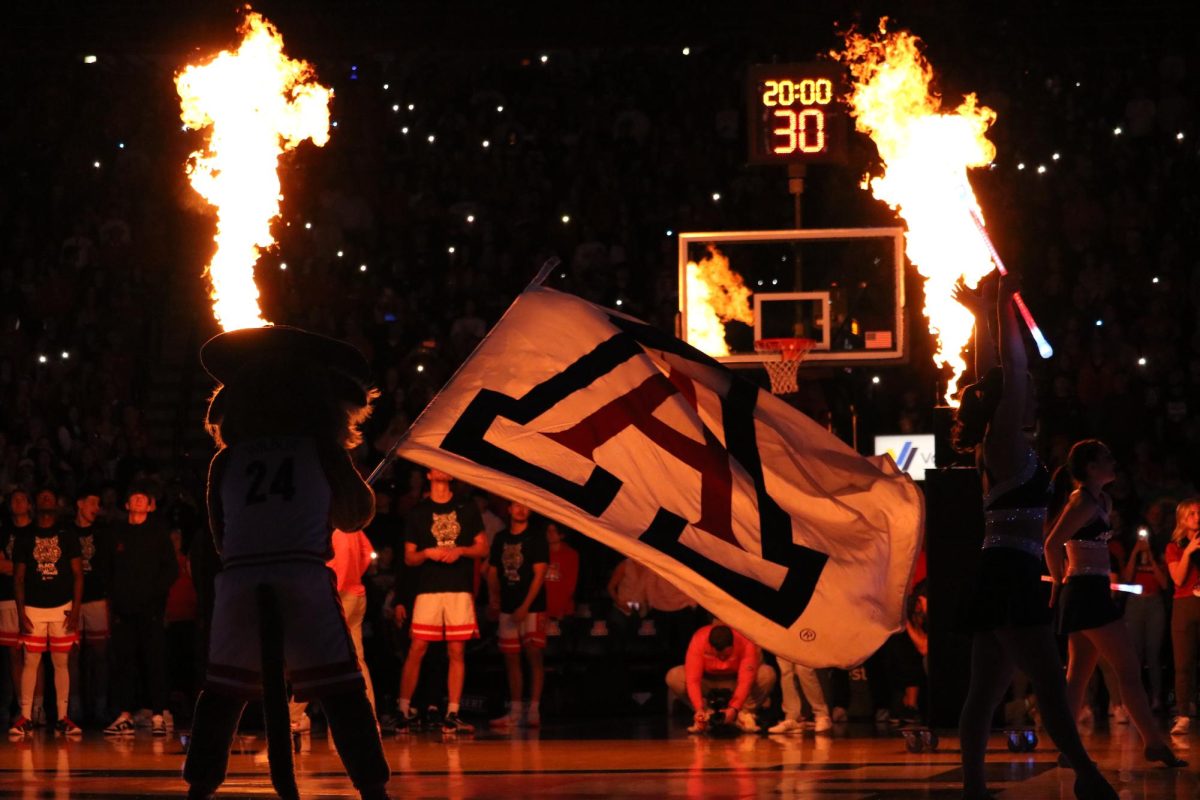Throughout “Mickey 17,” Bong Joon-ho is dead set on reminding the viewers that the rich are the absolute worst that society has to offer.
“Mickey-17” is an intelligently written, excellently performed and confidently directed film that follows the anti-capitalist themes present in Bong’s previous works. Revisiting the concepts of working-class oppression in “Parasite,” the critique of animal testing from “Okja” and the environmentalism of “Snowpiercer.” But none of this feels like he is retreading old ground, “Mickey 17” manages to maintain its own unique, off beat identity.
The plot centers around Mickey Barnes, played by Robert Pattinson, an unexceptional man living on a futuristic Earth with a devastated climate. After finding himself in debt to mobsters because of an ill-conceived macaron business, Barnes decides to flee the planet. The only way Barnes can manage his escape is by signing up to be an expendable on a colonist ship, where he will be killed and cloned over and over again to advance the colonists’ scientific research on the Hoth-like planet Niflheim. The planet turns out to be occupied by a race of giant bugs nicknamed Creepers, which are somewhere in between the Arachnids from “Starship Troopers” and the Ohmu from “Nausicaä of the Valley of the Wind.”
One of the reasons why “Mickey 17” works so well is that it takes familiar sci-fi concepts like cloning and space colonization and seamlessly weaves them together into commentary on modern society.
The repeated death and rebirth of Barnes is less like a miraculous act of resurrection and more like a disposable low-wage worker being replaced by another, equally disposable worker. Many of Barnes’ deaths evoke the imagery of lab testing on animals. Barnes is forcibly infected with a number of deadly viruses, injected with untested cures and tricked into eating toxic experimental growth hormones. Barnes’s suffering is rationalized as being necessary for the greater good, as it did lead to the creation of a life-saving vaccine, but this supposed altruism is revealed to be a facade to create weapons for bio-warfare.
The disposability of Barnes is brought into question when the 17th clone of Barnes fails to die because he is saved by the Creepers. 17 returns to the mother-ship days later to discover the crew had assumed he died and had printed out Barnes 18. Pattinson does a great job of distinguishing between the spineless 17 and more temperamental 18, making it clear that despite their shared memories and DNA, the two Barness are largely independent entities. The original Barnes who signed onto the mission is long dead and the clones who stand in his place are not the same person.
The colonial mission is spearheaded by Kenneth Marshall, played by Mark Ruffalo, a disgraced politician leading a group of colonists to the stars so he can establish his own “pure-white planet.” While Niflheim’s entire celestial body is literally snow-white, Marshall quickly establishes his agenda involves the full-blown genocide of the native Creepers.
It is very easy as an American to see President Donald Trump in Marshall. Ruffalo plays Marshall with a twist on the typical Donald Trump impression, keeping the odd candor but dropping the New Yorker accent. He is hostile towards so-called aliens and his supporters are fanatics who sport red hats and spout the nationalist catchphrase “one and only.”
Bong told Entertainment Weekly that Marshall is not specifically a Trump parody and is instead a mash-up of any number of politicians and dictators, both historical and contemporary. It could also be argued Marshall is a take down of Yoon Suk Yeol, the now impeached president of Bong’s native South Korea. The most obvious parallel to Yoon is through the Lady Macbeth-esque character Ylfa portrayed by the delightfully devilish Toni Collette. Ylfa is Marshall’s wife and does not have an immediately obvious real-world American counterpart, but is likely a parody of the former-first lady of South Korea Kim Keon-hee, who was embroiled in a whole slew of scandals and the general public perception in Korea is that she encouraged her husband’s worst behavior.
However intentional the parallels are, the ability to project this fictional plutocrat to the leaders of countries across the world speaks to the universality of Bong’s themes. The evils of xenophobia, authoritarianism and sad small men trying to assert absolute power are scarily pervasive.
Marshall and Ylfa cannot run a space colony; they make the life of all onboard miserable. But the Barnes endure their repeated dehumanization by those in power. Even if they are treated as less than human, the Barnes reclaim their humanity through their friendships and their girlfriend Nasha, played by Naomi Ackie. Their relationship anchors the film’s themes in a genuine heartfelt view of the working class. Barnes and Nasha are blue collar workers stuck on a planet whose very environment wants to kill them and a government that hates them. But they have found something better than the riches Marshall has hoarded, authentic love.
“Mickey 17” is a lot of things: a sci-fi film, a dark, absurdist comedy, a political satire, but at its heart and soul, it is a story of love persisting through impossible odds.
Follow the Daily Wildcat on Instagram and Twitter/X









